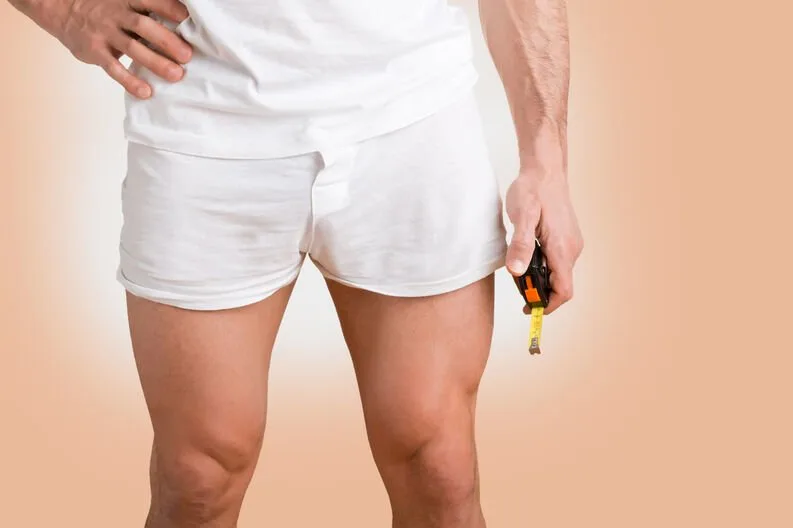It is normal for men to experience erection difficulties from time to time, and it can happen for countless physical and psychological reasons. While this situation can be incredibly uncomfortable and embarrassing, it doesn’t have to define your sexual performance or cast a cloud over your intimate relationships. With an understanding of the underlying causes of erectile dysfunction (ED) plus lifestyle tips from healthcare professionals, you’ll be better positioned to reduce the frequency of weak erections — or even eliminate them! Longevity Live Paid Content.
Overview of Erectile Dysfunction
A man with erectile dysfunction (ED) struggles to develop or keep an erection that lasts long enough for sexual activity. It is estimated that ED affects more than 30 million men in the United States and can range from mild to severe, depending on the underlying cause. Physical or psychological issues, such as hypertension, diabetes, obesity, certain medications, hormonal imbalances, or emotional stress, can cause ED.
In some cases, the combination of physical and psychological factors can create a vicious cycle of ED that may be difficult to break without professional medical help. If left untreated, ED can have long-term effects on a man’s personal relationships and overall well-being. This is why men need to take steps to understand the causes and risk factors associated with ED and take action if they experience any symptoms.
Physical Causes of ED
Physical causes of ED fall into two main categories: cardiovascular diseases and hormonal imbalances. Cardiovascular diseases, such as coronary artery disease, high blood pressure, and diabetes, can lead to decreased blood flow to the penis, which makes it difficult for a man to get or maintain an erection.
Hormonal imbalances can also contribute to ED by affecting testosterone levels or disrupting the chemical balance in the body. Low testosterone levels, as well as changes in hormone levels due to age or stress, can also contribute to ED. It is important to understand that while low testosterone can cause physical symptoms such as decreased libido and fatigue, it is not the only cause of ED.
Psychological Causes of ED
Psychological causes of ED, such as anxiety, depression, and relationship issues, can also be contributing factors. Anxiety or stress related to a man’s sexual performance can cause him to become overly self-conscious or anxious during intimate moments. This can lead to difficulty achieving or maintaining an erection. Additionally, unresolved relationship issues can contribute to ED by creating tension between partners and leading to feelings of insecurity.
Lifestyle Tips for Reducing Weak Erections
There are also several lifestyle changes you can make to reduce the frequency of weak erections. These include:
- Eat a balanced diet with plenty of fresh fruits and vegetables.
- Exercising regularly and maintaining a healthy weight.
- Avoid cigarettes, alcohol, and recreational drugs.
- Minimize stress and learn how to manage stress more effectively.
- Stay hydrated by drinking at least eight glasses of water per day.
- Practicing relaxation techniques such as yoga or meditation helps manage anxiety or tension.
Exercise Routines to Strengthen the Penis and Increase Blood Flow
In addition to the lifestyle changes mentioned above, certain exercises can help strengthen the muscles of the penis and increase blood flow. For example, Kegel exercises can help improve erectile function by strengthening pelvic floor muscles that control ejaculation. To do a basic Kegel exercise, simply contract your pelvic floor muscles (the same ones you would use to stop the flow of urine) for 10 seconds at a time, release, and then repeat 10–15 times. You can do this exercise anywhere, anytime – even while sitting at your desk!
Penis pumps are another option for men who want to increase their blood flow and achieve stronger erections. Penis pumps work by creating vacuum pressure around the penis, which draws more blood into its chambers. This can help you achieve a stronger, firmer erection that lasts longer than usual.
Stress Management Techniques To Reduce Anxiety and Depression
Finally, it is important to address any underlying psychological issues that may be contributing to ED. Stress management techniques, such as daily relaxation exercises and mindfulness practice, can help reduce anxiety and depression symptoms that may be inhibiting your sexual performance.
Additionally, talking openly with your partner about any relationship issues or feelings of insecurity can also help create a more positive atmosphere for intimacy.
Medication Options for Treating ED
If you’ve been struggling with ED, your doctor may prescribe certain medications to help you manage the condition. One of the more commonly prescribed treatments is Cialis, an oral pill that helps increase blood flow to the penis for up to 36 hours. This medication can be taken on an as-needed basis or daily in lower doses. The most common version of Cialis is $465.83 for a month’s supply.
Seeking Professional Help For Long-Term Solutions
In some cases, ED can be caused by an underlying medical condition. If you have been struggling with ED and are unable to find relief through lifestyle changes or medication, it is important to seek professional help. A healthcare provider can help identify the root cause of your ED and develop a personalized treatment plan that addresses all of your needs.
Although there is no one-size-fits-all solution for everyone, there are many treatments available that can help men manage their weak erections more effectively and improve their overall quality of life. With the right combination of lifestyle changes, medication, and stress management techniques, you can achieve stronger erections and improved sexual performance. Don’t be afraid to reach out for help if you need it![/vc_column_text][/vc_column][/vc_row]



